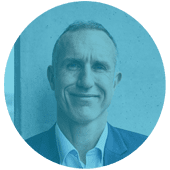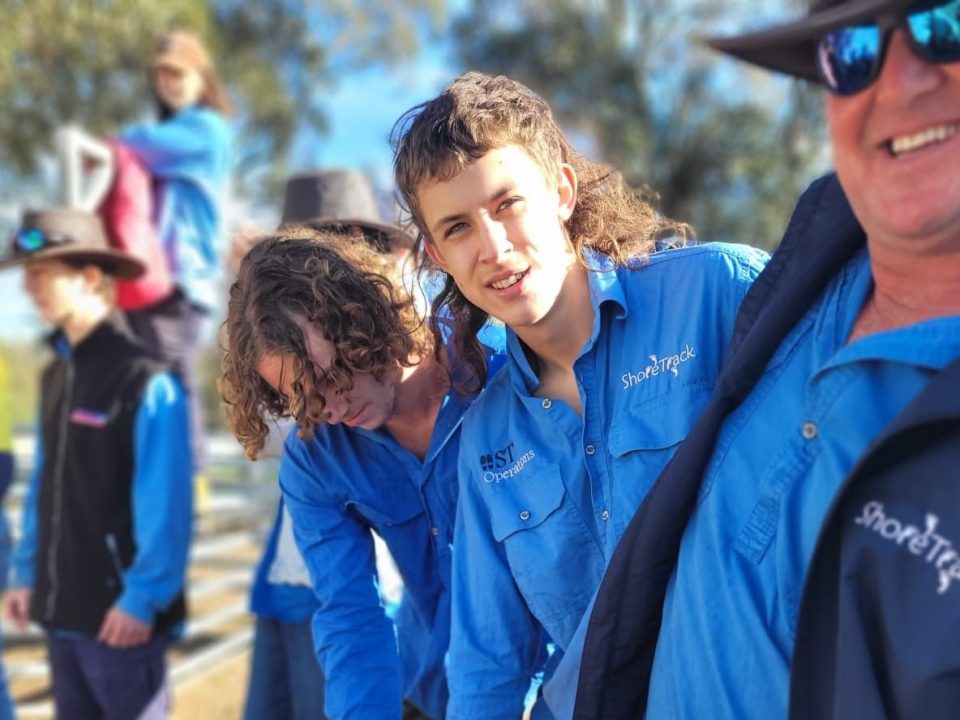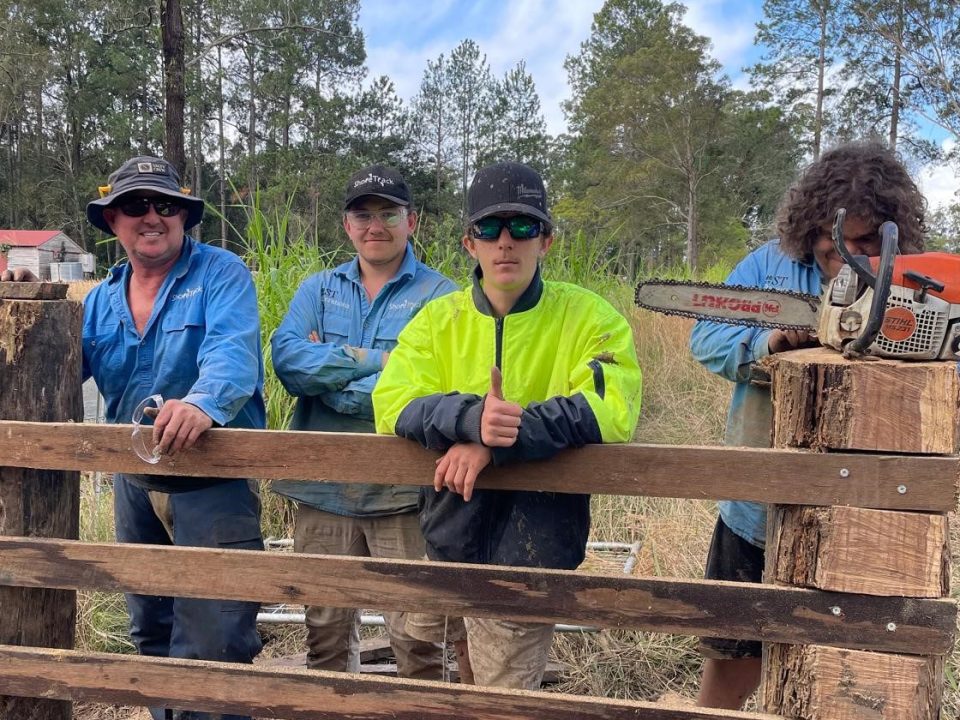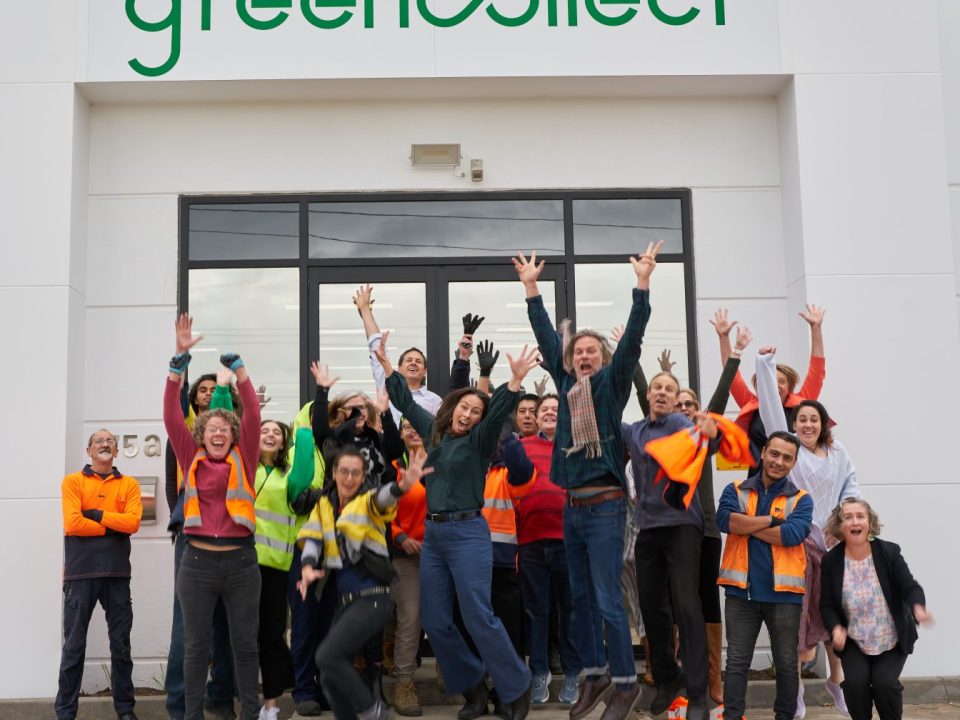SELF
Empowering social enterprises with the right capital at the right time.
Launched in 2025, the Social Enterprise Loan Fund (SELF) is Australia’s first loan fund specifically designed for social enterprises supporting employment pathways.
We understand the challenges. Despite the incredible impact social enterprises are having —transforming lives, strengthening communities, and boosting the economy—accessing the capital needed to grow and create more jobs is often an uphill struggle.
That’s why we built the SELF: to bridge this gap and offer flexible, affordable financing designed to meet the unique needs of social enterprises that support employment pathways.
What the SELF offers
We’re here to help you grow your social enterprise and provide meaningful work opportunities for people who face complex barriers to employment. Whether you're looking to expand your team, invest in new equipment, or scale operations, the SELF provides financing designed to meet you where you are -- the right capital at the right time.
- Loan amounts: From $100,000 to $500,000
- Interest rates: As low as 6.5%
- Terms: Up to 7 years
- Flexible structure: Tailored to the unique needs of social enterprises
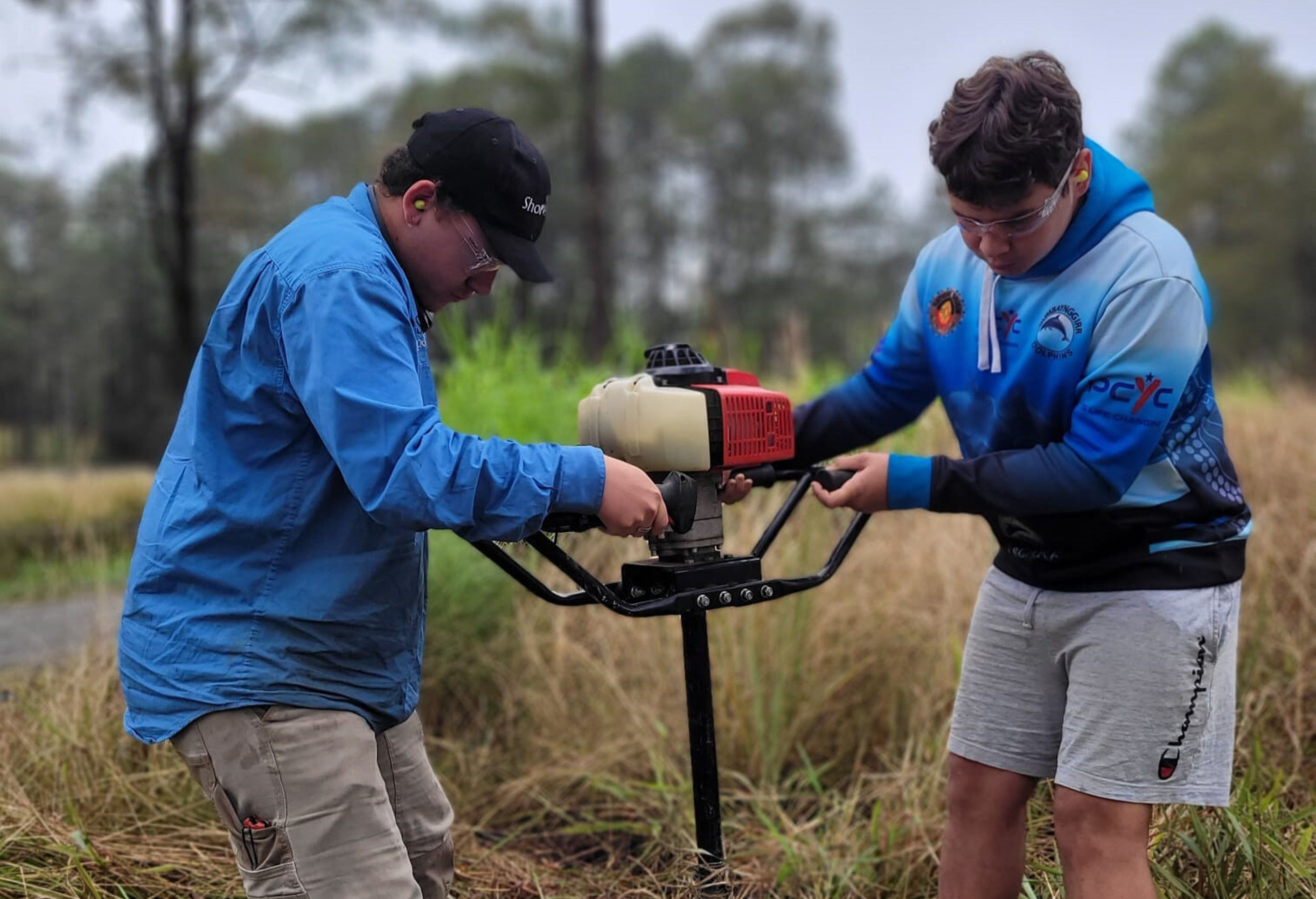
We’re proud to have an amazing lineup of partners who share our vision for change.
The SELF is managed by White Box Finance, a separate entity from White Box Enterprises, and overseen by a dedicated and experienced independent board of directors and external fund administrator, Rawlings Bolton.
With big names like Westpac Foundation, which has committed $1 million in first-loss capital and $500,000 for operational costs over two years, as well as Macquarie Group Foundation, the Australian Government, Victorian Government, the Ian & Shirley Norman Foundation and the English Family Foundation, you can feel confident knowing the SELF is built on a strong foundation.
The SELF bridges the gap between traditional finance and philanthropic funding, empowering social enterprises to grow sustainably and reduce their reliance on grants.
It also recognises, and rewards, the impact that social enterprises like yours are already achieving.
Through impact-based discounts, borrowers who meet specific impact milestones, like job creation and community benefits, can lower their interest rates, making it easier to expand your impact while keeping borrowing costs down.
Watch our info session. In this 50-minute webinar, we walk through the fundamentals of the SELF—how it works, who's eligible, and how to apply. Plus we answer questions from social enterprises like yours.
We’d love to hear from you
If you're a social enterprise that supports employment pathways and you're seeking low-cost, patient capital to grow your business and expand your impact, the SELF could be the opportunity you’ve been waiting for. Expressions of interest (EOI) are now open.
Why should you consider borrowing?
For many social enterprises, the idea of taking on debt might feel unfamiliar or even intimidating. But borrowing can be a powerful tool to help you grow, scale, and create even more impact.
We’re here to guide you every step of the way. To help you get started, we’ve outlined some key reasons why borrowing could be the right choice for your social enterprise, along with common concerns we’ve heard from organisations like yours—and how we address them.

1
It’s different from grant funding
Grants are vital to the social enterprise ecosystem, but they’re not always the right fit for every situation. They often come with limitations—strict cycles, specific conditions, and fierce competition.
Borrowing offers an alternative:
- Flexibility: Use the funds where they’re needed most.
- Speed: Access funding on your timeline, not someone else’s.
- Freedom: Focus on your mission rather than reshaping it to fit funding criteria.
Unlike grants, the SELF isn’t a competition. Each social enterprise is assessed on its own merits.
3
Build financial resilience
Taking on and managing debt fosters financial discipline and diversification. It allows you to focus on long-term sustainability, rather than being locked into short-term project cycles. By incorporating patient debt alongside philanthropic and grant funding, you can diversify your funding base and build a more balanced and resilient financial structure.
2
The right capital, at the right time
Borrowing gives you access to funding when your enterprise needs it most —whether you’re growing your team, expanding operations, or responding to an urgent opportunity. It’s capital that works on your timeline, empowering you to act quickly on opportunities or challenges as they arise.
4
Grow without giving up control
Borrowing doesn’t require you to share ownership or decision-making power. You retain full control of your enterprise, your mission, and your vision, while gaining the resources to grow.
Still have concerns?
Here are some of the common concerns we hear about borrowing, and how we address them.
You can read more FAQ here.
To explore how borrowing can help you achieve your mission and create lasting impact, get in touch today.
Expressions of interest (EOI) are now open
If you're a social enterprise that supports employment pathways and you're seeking low-cost, patient capital to grow your business and expand your impact, the SELF could be the opportunity you’ve been waiting for.
Typical loan terms
Loan amounts: Can range from $100,000 to $500,000
Interest rates: Starting as low as 6.5%, with the potential for impact-based interest reduction if social impact milestones are achieved (e.g. job creation, community benefits) reducing to an effective rate of 6% over the life of the loan.
Loan terms: Up to 7 years
Repayment flexibility: While most loans are expected to start repayments from day one, schedules may be customised to align with your social enterprise’s needs if appropriate.
Security: SELF loans do not have to be secured but if collateral is available we request it is provided as security. Future contracts or trading turnover will be considered collateral when no other security exists. The goal is to provide flexible financing that aligns with the unique needs of each social enterprise.

Eligible uses: Loan funds can be used for working capital, expansion costs, equipment purchases, or other growth-related expenses that align with the mission of creating employment opportunities for people who face barriers to work.
Expressions of interest (EOI) are now open
If you're a social enterprise that supports employment pathways and you're seeking low-cost, patient capital to grow your business and expand your impact, the SELF could be the opportunity you’ve been waiting for.
The investors who make the SELF possible
The SELF is backed by significant players committed to fostering economic and social impact, including Westpac Foundation, Macquarie Group Foundation, the Australian Government, the Victorian Government, the English Family Foundation, and the Ian & Shirley Norman Foundation.
The support of these reputable partners highlights the importance of enabling social enterprises to drive meaningful change in communities across Australia.

We have secured $4.2 million from four philanthropic organisations, the Australian Government and the Victorian Government to support the SELF, with a target of $5 million.






We have a dedicated and experienced team of experts working on the Social Enterprise Loan Fund.

Mark Daniels
Chief Operating Officer, WBE
Mark is a leading figure in the social enterprise sector in Australia. He has been a buyer from social enterprise, run a number of social enterprises and advocated for and provided services to social enterprises over a period spanning 20 years. Mark is the COO of White Box Enterprises and is Company Secretary of White Box Finance. Prior to coming to WBE, Mark was a co-founder of Social Traders and an Executive Director for 13 years. There he led the development of their social enterprise marketplace which has become a must-access service for corporate and government clients seeking to build social enterprises into their supply chains.
Chief Operating Officer, WBE

Josh Ackman
Head of White Box Finance
Over the past 27 years, Josh has worked globally in London, Tokyo, New York and Australia, investing capital and managing funds on behalf of various institutions including Foundations, Family Offices and High Net Worth individuals, including Goldman Sachs, Deutsche Bank, River Capital, and some of Australia’s largest Family Offices. Most recently Josh, in his capacity as Head of Credit and Principal at River Capital, established and managed nine discrete Funds totalling in excess of $500 million. Each of those funds have now matured and each successfully achieved annualised returns of between 9% and 15% after fees. Josh has been CIO of White Box Finance since 2020.
Head of White Box Finance

Murna O’Neill
SELF GM
Murna has over 20 years’ experience in a variety of roles in the finance sector. She began her career in PWC where she qualified as a Chartered Accountant in 2004, before moving to Funds Management earning the CFA designation. She managed the Floating Rate Note Portfolio and Foreign Exchange Portfolios in Medibank Private before moving to River Capital gaining valuable experience in High Yield Credit, eventually managing Investor Relations for the firm. Murna is fascinated by social finance and has worked extensively over the last 18 months to develop the SELF.
SELF GM
Our investment committee brings their diverse perspectives and deep expertise to serve as advisors to our fund.

Mark Daniels
Chief Operating Officer, WBE
Mark is a leading figure in the social enterprise sector in Australia. He has been a buyer from social enterprise, run a number of social enterprises and advocated for and provided services to social enterprises over a period spanning 20 years. Mark is the COO of White Box Enterprises and is Company Secretary of White Box Finance. Prior to coming to WBE, Mark was a co-founder of Social Traders and an Executive Director for 13 years. There he led the development of their social enterprise marketplace which has become a must-access service for corporate and government clients seeking to build social enterprises into their supply chains.
Chief Operating Officer, WBE

Josh Ackman
Head of White Box Finance
Over the past 27 years, Josh has worked globally in London, Tokyo, New York and Australia, investing capital and managing funds on behalf of various institutions including Foundations, Family Offices and High Net Worth individuals, including Goldman Sachs, Deutsche Bank, River Capital, and some of Australia’s largest Family Offices. Most recently Josh, in his capacity as Head of Credit and Principal at River Capital, established and managed nine discrete Funds totalling in excess of $500 million. Each of those funds have now matured and each successfully achieved annualised returns of between 9% and 15% after fees. Josh has been CIO of White Box Finance since 2020.
Head of White Box Finance

Lauren Maccheroni
Director Sustainability Team
Macquarie Asset Management
Lauren has nearly 20 years’ experience working across global funds management, risk management and investment advisory. Lauren has worked in various roles across Macquarie Group and is currently part of Macquarie Asset Management’s dedicated Sustainability team. Lauren has also worked in boutique investment management firms and has experience leading transactions, special projects, and designing and implementing impact investment and governance frameworks.
Director Sustainability Team
Macquarie Asset Management
Impact Investment Expert

Craig Parker
Former Westpac Executive Director
Securitisation and Structured Finance
Craig retired from Westpac Banking Corporation in 2023 after 41 years in a variety of senior executive roles. Until his retirement, Craig had been Executive Director and Head of Westpac’s global structured finance and securitisation activities for over 18 years. He previously led Client Relationship Management and Corporate Finance teams in Australia and Hong Kong. Craig holds a BA (Economics), B. Ec (Accounting & Finance) and an MBA from Macquarie University, Sydney. He is also a CPA and a Fellow of the Australian Securitisation Forum. Craig is a Director of Firstmac Limited and chairs its Audit Committee; Solvar Limited and chairs its Audit, Risk and Compliance Committee and Forsight Australia Limited and chairs its Finance and Audit Committee.
Former Westpac Executive Director
Securitisation and Structured Finance
Finance expert

Matt Cameron
General Manager
Investment Risk Management, HESTA
Matt is the General Manager of Investment Risk Management at HESTA superannuation fund, a role
he began in 2020. Prior to HESTA, Matt had an extensive career in financial services in client facing, risk
taking & risk management roles across Australia, North America and the Asia-Pacific. Matt held the role
of Managing Director in Bank of America Merrill Lynch’s (BAML) Global Banking & Markets division in
New York, where he was responsible for the portfolio risk & lending functions of its financing business.
In these roles Matt has participated in various governance, management, risk, capital and liquidity
committees and forums.
General Manager
Investment Risk Management, HESTA
Risk management expert
Expressions of interest (EOI) are now open
If you're a social enterprise that supports employment pathways and you're seeking low-cost, patient capital to grow your business and expand your impact, the SELF could be the opportunity you’ve been waiting for.
Is the SELF right for your social enterprise?
SELF loans are made for social enterprises supporting employment pathways—businesses that create meaningful employment opportunities for people often excluded from the job market.
These aren’t your typical employers. Social enterprises go above and beyond, offering more than just jobs. They create supportive work environments, provide flexible schedules, and deliver training and career support to help people thrive in their roles and beyond.

To be eligible for a SELF loan, your social enterprise must:
- Be a not-for-profit (or an Indigenous business) with deductible gift recipient (DGR) status.
- Have been operating as a social enterprise for at least two years and generate over 50% of your income from trade.
- Have evidence of revenues generated from trading activities of at least $50,000 per annum in the last financial year.
- Be registered and operating in Australia.
- Be either:
- Social Traders certified
- People and Planet First verified
- Supply Nation registered
- A member of your state’s peak social enterprise body
- Have registered your interest with the relevant body for certification.
- Pay full award wages.
- Create jobs for people facing complex barriers to employment.
- Primarily employ and support individuals from at least one of these groups:
- Aboriginal and Torres Strait Islander people
- Adults aged 65 and over
- Migrants, refugees, or asylum seekers
- People from culturally and linguistically diverse backgrounds
- Residents in rural, regional, or remote communities
- People with disabilities
- Individuals with recent or current experience of homelessness
- Youth (aged 15 to under 25)
- Other individuals with documented experiences of disadvantage not listed here
- Be able to demonstrate employment and support for people experiencing barriers to work through:
- Independent evaluations
- Participation in government programs (e.g., Skilling Queenslanders for Work, Disability Employment Services)
- De-identified data on employees (e.g., numbers of employees from target cohorts, residence locations)
- Qualitative or photographic evidence of employment and support initiatives
- Provide past and projected financial statements if available.
- Present a clear plan for how the loan will be used and the expected social and financial impact.
- Have a management team with strong dedication to the social mission and relevant experience.
Does this sound like you?
If your social enterprise meets these criteria, we’d love to hear from you.
Start by submitting an EOI, and we’ll guide you the rest of the way.
Ready to get started?
We know social enterprises have unique needs and we’re here to help you ever step of the way.
The application cycle can run for approximately three months from initial conversation to loan closing. However, timeframes may vary depending on the complexity of the application, your responsiveness, and overall demand for finance.
The process has been stepped out below.

1
Step 1: Get in touch
If you are interested in learning more about a loan with the SELF, start by filling out our expression of interest (EOI) form. This helps us understand your eligibility and initial needs.
5
Step 5: Final review
Approval for your loan will be sought from our investment committee, who will make the final decision. Sometimes approval will be granted subject to some conditions being met or further information being provided.
2
Step 2: We’ll give you a call
If you’re eligible, we’ll reach out for a preliminary call to discuss your mission, impact, and how the SELF could support your growth. We want to make sure a SELF loan is the right fit for you, before you invest time in gathering your paperwork.
6
Step 6: The legal bits
If approved, we’ll send you a standard loan agreement detailing the terms and conditions, including the interest rate, security type, General Security Agreement (GSA), and impact targets (as agreed with you).
3
Step 3: Complete your application
Once we confirm alignment, you’ll be invited to upload relevant documentation through Process Street. This includes sharing key information about your business model, financials, and social impact.
You can read more about Process Street and why we use it in the FAQs.
7
Step 7: Get funded
After all agreements are signed, the loan will be finalised and funds will be deployed.
4
Step 4: We’ll go deeper
In this stage, our finance team will get to know you and your social enterprise better by reviewing documentation and scheduling further meetings including a face-to-face meeting with you.
8
Step 8: Report your impact (and get rewarded for it)
Borrowers will need to provide regular financial and impact reports—either on each interest payment date or at least quarterly.
Our team will remain available to support you with any questions on reporting requirements and to discuss further funding needs .
In Year 4, White Box Finance will independently verify the impact you’ve achieved. If your targets are met, a rebate of 0.50% will be applied to the effective interest rate over the life of the loan, reducing your repayments for the remaining loan period.
Expressions of interest (EOI) are now open
If you're a social enterprise that supports employment pathways and you're seeking low-cost, patient capital to grow your business and expand your impact, the SELF could be the opportunity you’ve been waiting for.
Have questions? We’ve got answers.
Check out our FAQs below or reach out to our team. We’re here to make the loan process as simple as possible.
You can also watch our recorded info session for a walkthrough of the SELF and answers to the most common questions.
1. What is the Social Enterprise Loan Fund (SELF)?
The SELF is a patient capital fund launched by White Box Enterprises to provide flexible, affordable loans for social enterprises supporting employment pathways in Australia. It’s specifically designed to help social enterprises grow and create job opportunities for people previously excluded from the jobs market.
2. Who is eligible to apply for a SELF loan?
The SELF is open to social enterprises registered in Australia that have been operating for at least two years and generate > 50% of revenue from trade which equates to a minimum of $50,000 per annum in the last financial year. See the full eligibility criteria here.
3. What can the loan funds be used for?
Loan funds can be used for working capital, expansion, equipment purchases, or other growth initiatives that align with a mission of creating jobs for people experiencing barriers to work. Certain uses may be restricted, such as non-mission-aligned investments or distributions to owners.
4. What are the typical loan amounts and terms?
Loans range from $100,000 to $500,000, with interest rates starting as low as 6.5%. Loan terms can extend up to seven years, with flexible repayment schedules designed to accommodate the needs of social enterprises.
5. How do I apply for a SELF loan?
Begin by submitting an expression of interest (EOI). If you meet the initial eligibility criteria, we’ll reach out to schedule an introductory call. Qualified applicants will then be invited to complete a full application through our Process Street platform. See the full application process here.
6. What is Process Street?
Process Street is a workflow management platform that helps us streamline the loan application process. It enables you to submit documents, track your application status, and ensure all required information is submitted in an organised and efficient manner.
7. Why do we use Process Street?
We use Process Street to create a clear, accessible, and secure application process. The platform helps us keep applications organised, and ensures that all required documents are submitted accurately. Additionally, Process Street is SOC II Type 2 and GDPR-compliant, meaning it provides a secure way to share and manage data in line with data protection regulations. This simplifies the application experience, reduces processing time, and safeguards your information throughout the process.
8. How do I use Process Street to upload documents?
Once you receive an invitation to complete your loan application, you’ll be given access to the Process Street platform. Follow these steps to upload your documents:
- Log in to Process Street as a guest user using the link provided in your invitation email.
- Set up your account.
- Navigate to the workflow section requesting specific documents.
- Click on the upload button and select the required file from your computer.
- Ensure the correct file has been uploaded and saved before moving to the next section.
If you need any assistance, our team is available to guide you through the upload process.
9. What documents and information will I need to provide for the loan application?
You’ll need to submit financial statements, evidence of your social impact, a business and impact plan, and other relevant information about your business model and mission alignment. We may also request evidence of certification, such as Social Traders, People and Planet First or Supply Nation registration.
10. How long does the loan application process take?
The timeline can vary, but we aim to complete the application and approval process within three months, depending on the complexity of the application, your responsiveness and overall demand for finance.
11. What is impact-based interest reduction?
The SELF offers an impact discount feature, which allows borrowers to reduce their interest rate by meeting specific social impact milestones, such as job creation targets. This incentivises greater social impact while making borrowing more affordable.
12. Are SELF loans secured or unsecured?
SELF loans do not have to be secured but if collateral is available we request it is provided as security. Future contracts or trading turnover will be considered collateral when no other security exists. The goal is to provide flexible financing that aligns with the unique needs of each social enterprise.
13. What happens when my loan application is approved?
After approval, you’ll enter a legal due diligence phase where terms are finalised and agreements are signed. We’ll then arrange a closing checklist to help you prepare for fund deployment and outline ongoing reporting requirements.
14. What support will I receive after receiving a SELF loan?
Our team will be available to assist with any questions related to reporting requirements and to provide guidance on maintaining compliance. Additionally, we’ll work with you to assess impact metrics and track your progress.
15. Can I apply if I’m still in the process of obtaining certification?
Yes, we encourage social enterprises that are pursuing certification or membership (e.g., with Social Traders or Supply Nation) to apply, provided that certification is in progress and aligns with your timeline for loan consideration.
16. Do I need to have a minimum trading history?
Generally, applicants should have at least two years of operating history and derive over 50% of their income from trade, demonstrating financial sustainability and mission alignment.
17. Who are the main backers of the SELF fund?
The SELF is backed by reputable partners, including Westpac Foundation, Macquarie Group Foundation, the Australian Government, the Victorian Government, the English Family Foundation, and the Ian & Shirley Norman Foundation. These partners reinforce the fund’s mission to drive economic and social change through job creation.
Expressions of interest (EOI) are now open
If you're a social enterprise that supports employment pathways and you're seeking low-cost, patient capital to grow your business and expand your impact, the SELF could be the opportunity you’ve been waiting for.



